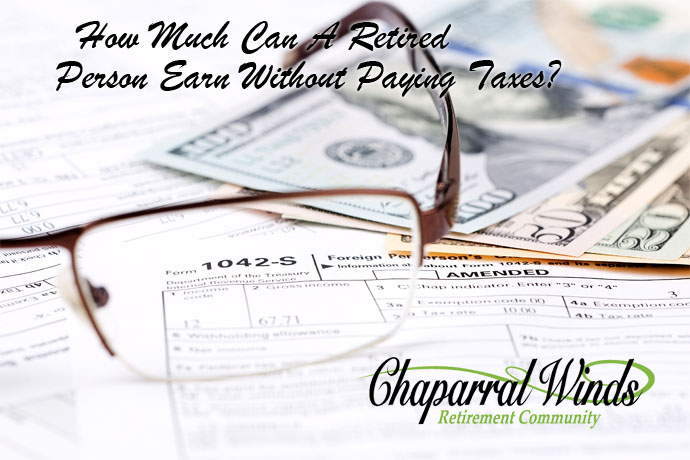How Much Can A Retired Person Earn Without Paying Taxes?
Retirement And Taxes
A single retire that is 65 or older can $11,950 without paying taxes. A Retired couple that is 65 or old that is filing jointly can earn up to $23,300 combined without paying taxes.
Retirement may mean long, soothing days without a boss breathing down your neck to get the reports done. But it doesn’t automatically mean freedom from the tax man. The good news is, you can live reasonably comfortable without a massive tax bill. Actually, if your only income is Social Security, you may not need to file a tax return whatsoever. The key is maintaining your earnings below a certain level based on how old you are.
Even though there are various deductions and credits can factor into the income of a retiree, the average deduction for a senior in 2018 is $13,300.
Maximum Earnings Before Paying Taxes
The most significant help to seniors is the fact that unearned income is taxed a little different than earned income. Unearned income covers your Social Security payments, any pension payouts and other money you already have coming. Earned income includes the money you make at a present job if, say, you’re working part-time to bring in additional money.
If the income you bring in is solely unearned, you may not need to file at all. The key is finding out if your earnings exceed the limit. A good rule of thumb is to add half of your Social Security income to the amount you acquired from other sources, your work earnings and earned income, including non-taxable interest. If this limit tops the IRS’s maximum for the year in question, also called a “base amount,” you are required to file. If you are 65 and older and filing as single, you can earn up to $11,950 in work-related income before filing. If a couple that is married and filing jointly, the earned income maximum is $23,300 if both are over 65 or older and $22,050 if only one of you is 65.
State Exceptions
If all of your income you bring in is unearned, you might still owe state taxes. Five states ¬– North Dakota, Minnesota, Vermont, Rhode Island and West Virginia – tax up to 85 % of their residents’ Social Security taxes. Another eight states moderately tax Social Security benefits, but there are some age exceptions, so check look up local laws to see what relates to you and your situation.
2018 Taxes and Standard Deductions
Beginning in 2018, seniors get a $1,300 standard deduction in addition to a new $12,000 standard deduction provided to all taxpayers. If the taxpayer is not married over 65, and not a surviving spouse, the additional deduction is $1,300 rather than $1,600. Those who are blind and over the age of 65 get an additional $1,300 for an amount of $14,600. There’s even more good news for senior taxpayers in 2019. The IRS is coming out with Form 1040SR, intended to streamline the filing process for seniors.
2017 Taxes and Income Ceilings
If you are still filing taxes for 2017, you will merely need to ensure your income deserves filing and find out the retirement tax rate. You will need to file if you earned $11,950 or more during the tax year, assuming you’re filing singly, or $23,000 if you’re married filing jointly and you’re both over 65.
Chaparral Winds Offers The Finest Retirement Living In Surprise, Arizona
Chaparral Winds is a retirement facility in Surprise, Arizona offering assisted living, independent living, and memory care services. For more information about our senior living facility, SLS Communities or to schedule a tour, please call us today at 623-343-4125.


